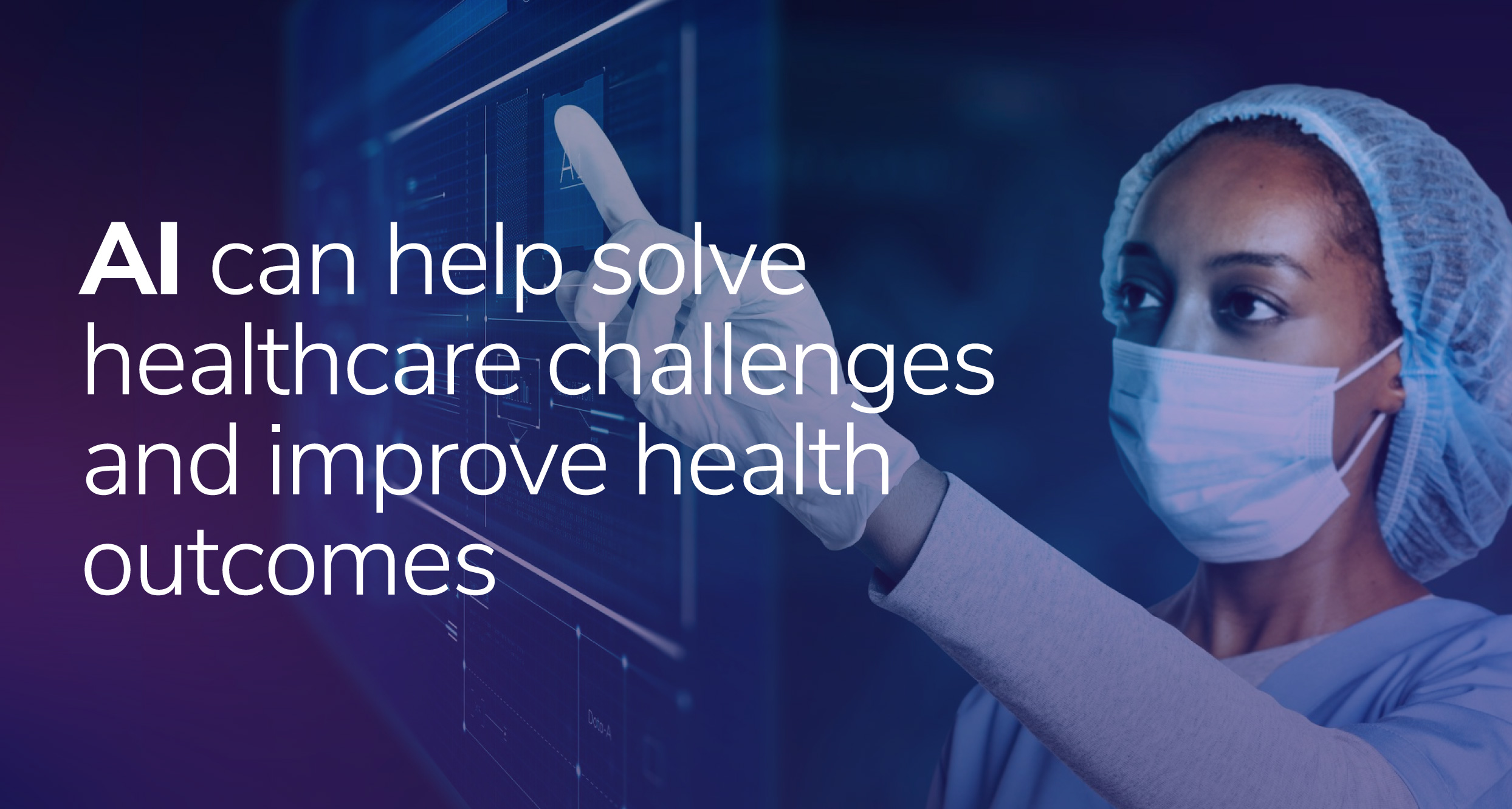AI Transforms Personalized Care for Better Health Outcomes

Artificial intelligence (AI) is transforming the healthcare industry in profound ways, including revolutionizing patient care, evolving the patient experience, improving operational efficiencies, and assisting in medical research. This comes as no surprise as many payers, providers, and healthcare systems are already reaping the benefits of integrating AI-powered solutions into their organizations. When leveraged thoughtfully, AI can relieve provider constraints and facilitate time to treatment, leading to better health outcomes.
Access to online health information has led many people to “Dr. Google” as a first step to diagnosis and when considering medical treatment. Ironically, though, patient mistrust surrounding digital technology in healthcare — including AI-driven care delivery — remains high. Nearly one-third of American adults and 40 percent of adults under 34 report that while they would be comfortable with an artificial intelligence-led primary care appointment, it isn’t their preference. Although survey respondents reported believing that AI in healthcare could reduce medical bias and improve diagnostic accuracy, more than 80 percent of respondents would prefer seeing a human medical professional for prescribing pain medications, deciding when to go to the emergency room, and other services. While there is merit in a healthy amount of scrutiny, many worthy AI use cases support better care, enhanced patient experiences, and greater personalization at scale.
AI Improves Patient Engagement and Reduces Healthcare Costs
AI is a core part of customer engagement strategies across many industries, especially retail and hospitality. In healthcare, this often looks like features such as chatbots, AI-guided search, or a scheduling interface, but there are many other ways AI can improve the patient experience. We’re also seeing examples where AI-powered solutions are improving back of the house tasks such as call center enablement, realtime customer service recommendations and automating call recaps.
Consider a clinical setting where a patient is discharged with follow-up appointments and medications to maintain their course of care. AI-driven solutions can help providers automate outreach based on existing patient journeys and set up workflows designed to support clinical adherence and patient engagement. AI can enable a faster path to precise treatment and ideally more efficient and effective treatment, reducing the cost of care. More time spent with patients has repeatedly been shown time to improve healthcare outcomes.
In addition, AI can facilitate millions of data points and automated interactions across billing, payments, scheduling, credentialing, and triage tools to help patients and providers better navigate the healthcare ecosystem. These areas can cause frustration for all involved, yet represent a monumental opportunity to improve the patient experience. An efficient, valuable, and differentiated experience is what care teams strive for.
AI Unlocks the Full Potential of Electronic Health Records
Improving the patient experience with digital tools is more than simply reducing clicks; it’s about eliminating or reducing time spent on low-value or manual tasks. A great example of AI in healthcare is how it relates to leveraging data for optimization. Unlocking the full capability of Electronic Health Records (EHRs) is often considered the holy grail of healthcare. EHRs are designed to capture information in the moment, based on the clinical workflows and interactions between patients and providers — not necessarily to tell a cohesive patient story or provide comprehensive reporting. AI is changing that.
Epic and Microsoft are teaming up to create a “co-pilot” model, using generative AI and Large Language Models (LLMs) to provide decision support and intelligent recommendations and reduce the documentation burden that comes with the current MyChart experience — specifically summarizing notes, coding, and billing. With the U.S. Department of Health and Human Services predicting a nationwide shortage of medical professionals and up to 60% of clinicians experiencing burnout, there is an opportunity for AI to help address documentation fatigue directly. Additionally, by supplementing routine healthcare tasks and decisions, AI has the power to serve patients without surfacing directly, allowing for more intentional and personalized care delivery. This leads to more time spent treating patients versus time spent on a diagnosis and relieves constraints on clinical teams.
Delivering More Accurate Diagnoses With AI
Enhanced access to EHRs empowers clinicians to leverage AI to accelerate diagnosis accuracy for rare or complex cases. Many organizations, including MIT, use AI Machine Learning (ML) and LLMs with clinical guidance. Using ML and LLM tools gives clinical teams the ability to review large quantities of data in a short amount of time. The opportunity to reduce “time to treat” (the time between when symptoms are initially reported to diagnosis and care received) via evidence-based clinical pathways is critical to the future of healthcare.
A study from Mass General Brigham found that AI achieved 72 percent accuracy in overall clinical decision making, ranging from identifying possible diagnoses to making final diagnoses and care decisions. This is similar to the diagnostic accuracy of doctors in recent studies. The approach included using LLM across the entire scope of clinical care — from initial patient engagement to diagnosis, treatment, and ultimately, post-care regimens — to support decision making rather than isolating single tasks or experiences with the health system. This technology has the potential to help make connections between patients, disease, and treatment that could lead to earlier detection of diseases, more consistent analysis of medical data, and increased access to care, particularly for underserved populations.
How AI Addresses Patient Skepticism and Adoption
Despite initial success in controlled environments, there remains a healthy amount of skepticism from patients surrounding AI. According to a Boston University study, patients believe that their medical needs are unique and cannot be adequately addressed by algorithms. Part of this skepticism is because people trust doctors more than almost any other profession. And while we see great value and benefit of AI in healthcare for patients and providers, it is not meant or designed to replace provider expertise and interactions. AI can help reduce human error and improve efficiency but the intention is not for AI to replace a healthcare provider.
One way to address the potential skepticism is by building in feedback and validation of AI-assisted tools or processes. For example, academic medical centers put every cancer case through a multidisciplinary review via a tumor board. There, the case is presented, various approaches are reviewed from the relevant disciplines involved, and a course of treatment is determined based on evidence. By building in proper guidance and feedback loops, AI-assisted care delivery tools can accelerate routine treatments, and healthcare providers can help account for some of the limitations of AI in clinical practice.
The Future of Healthcare is Digital
AI accelerates and improves core areas of interaction between patients, providers, and solution entities to facilitate personalization, improve patient outcomes, and enhance the overall quality of healthcare services through data-driven decision-making. We are actively working with our clients and technology partners to highlight the many ways AI can add value to their organizations and how they can responsibly integrate new solutions to provide exceptional care to their users. By leaning into digital-first experiences, AI has the power to revolutionize care delivery, relieve constraints on healthcare systems and lead to better health outcomes for patients.


